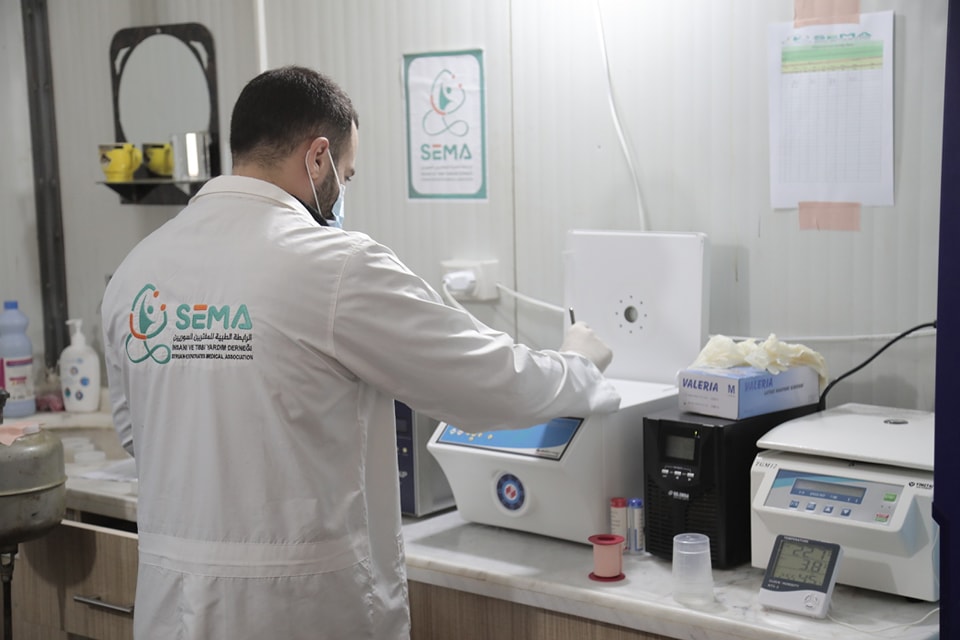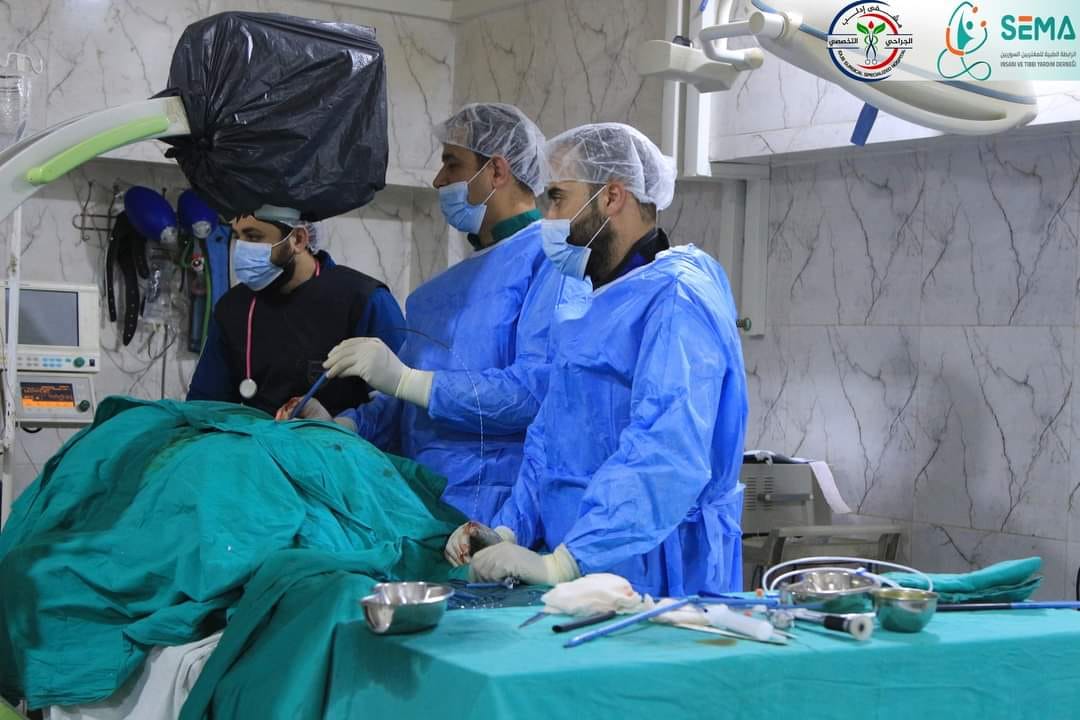Newborns and mothers in the postpartum period everywhere have a fundamental right to postnatal healthcare services.
However many countries have a shortage of medical services for newborns and mothers, especially in developing and underdeveloped countries, this is where your role comes into play to support SEMA in its efforts to help those families.
Immediate care at birth
Every newborn around the world has the fundamental right to high-quality health care. Healthcare entails several aspects, such as protection against injury and infection as well as being fed and kept warm.
Access to essential, immediate healthcare services is critical to all newborns, especially during their first days. Such essential healthcare services include the following:
- Immediate care including (thorough drying, skin-to-skin contact, delayed cord clamping, etc.,).
- Breast milk feeding.
- Preventing infection.
- Thermal care services.
- Assessment of breathing.
- Assessment of any health issues.
- Speedy and safe response when needed.
- Nourishing and nurturing care.

Parental guidance for newborns and infants
Parental caring for newborns can be hard, especially for first-time parents. Thus, there are several guidelines that new parents should follow which include:
- Washing your hands or sanitizing your hands prior to handling the baby. This step is crucial since newborns are at risk for infections.
- Support your baby’s hand and neck when carrying the baby or when you lay him/her down.
- Avoid shaking your newborn, as shaking could cause his/her head to bleed which might lead to death.
- Make sure that the baby is securely and properly fastened into the car seat, the stroller, or the carrier. It is imperative to keep the newborn protected against any rough or bouncy movement.
- Abstain from playing with your newborn roughly, such as throwing him/her in the air as it might put him/her in danger.
- Keep close physical contact with your newborn because it is important to fulfill his/her emotional needs for bonding.
Putting a baby to sleep
It is important for the baby to have a bedtime routine that includes bathing him/her, changing his clothes and nappy, gently putting to bed, caressing, kissing, and cuddling them, as well as dimming the lights.
Handling a newborn
When handling a new baby it is essential to wash or sanitize your hands, avoid shaking them roughly, and support their heads and necks with your hands gently when carrying them.
Diapering
Tips prior to diapering a baby include: choosing a good location, whipping carefully, smoothly, and carefully securing the diaper, using distractions with the squirming baby, double checking if the baby is clean, and washing your hands carefully.
Breastfeeding and burping
Burping is important for babies that are both breastfed and bottle-fed. However, bottle-fed newborns tend to swallow more air. It is recommended to burp your baby every 2 to 3 ounces. Also, burp your baby every 5 minutes during breastfeeding and switch breasts.
Vaccines for newborns
All newborns need to get the first shot of the hepatitis B vaccine within 24 hours of birth.
Infant mental health
Mental health for infants is concerned with their ability to express different emotions, willingness to foster relationships, and discover the surrounding environment. Baby’s mental health is adjustable to various responses around him/her.
Parent education about infant mental health
Parents can follow several techniques to bond with their newborns and show them their love, which will reflect positively on their mental health.
Simple actions of emotional bonding with your baby include cuddling and hugging them and tending to their essential needs. Baby’s mental health is key for their social and emotional growth and the development of their brain and body.

Promote positive mental health in the family
Promoting positive mental health in the family is an integral part of the newborn’s mental health since positive family relationships affect their mental, emotional, social, and physical growth and maturity. Below are some measures that could help enhance mental health in the family:
- Participating in delightful activities.
- Focusing on points of strength in the characters of family members.
- Discussing feelings and emotions.
- Strengthening healthy habits and behaviors.
- Promoting well-being.
- Fostering emotional connections.
Expenses of newborn healthcare
The costs of newborn healthcare are variable and changeable from one country to another. According to UNICEF, the higher the income of a country the lower the mortality rates will be.
For example, Japan is one of the most expensive countries in terms of healthcare expenses for delivering babies and mothers in the postnatal period.
On the other hand, countries that do not allocate much of their resources to child delivery and postnatal care for women are expected to have higher mortality rates among newborns.
Unfortunately, mothers and newborns in poor and developing countries are less likely to have access to proper healthcare services, support, nourishment, and other needs.
Donate now to help refugee families access newborn care
With your donations, you can help an enormous number of refugee women in war-stricken and developing countries to get access to proper healthcare services.
Donations can save thousands of babies and mothers who die every year due to poor postnatal healthcare services.
Your support today will give hope to many newborns and their families who live in adverse circumstances.
Such contributions will be channeled toward SEMA’s healthcare projects and programs to pave the way for a brighter future for many children and their families.
SEMA services for newborn healthcare
SEMA works on many effective postnatal healthcare projects and services that would provide mothers and their babies with the proper care they need. These include
- Building new hospitals equipped with all the necessary healthcare facilities and the latest medical technologies and equipment.
- Organizing training sessions and workshops to improve the skills of the medical teams including doctors, midwives, and nurses.
- Providing mothers during the postpartum period with all the medical and psychological support they need.
- Establishing mobile clinics equipped with all the needed medical facilities in isolated areas.
FAQ
What care should be given to a newborn?
Some of the care that should be provided for newborns include the following:
Thermal care.
Infection prevention care.
Supporting the newborn in breastfeeding.
Resisting the newborn when needed.
Checking the newborn up for any health issues.
What are the 5 initial steps of newborn care?
The 5 initial steps for newborns include the following:
Providing warmth.
Drying.
Stimulating.
Positioning the head and neck to allow for the air to pass.
Clearing secretions from the airway if needed.
How much does it cost to take care of a newborn?
Costs of healthcare for newborns vary from one country to another.
What are the health conditions in newborns?
Common health conditions for babies include the following:
Colds.
Coughs.
Fevers.
Vomiting.
Skin problems like diaper rash.
Resources
- Common Infant and Newborn Problems.
- 10 Amazing Ways to Build Wealth at Any Age.
- Promoting Positive Mental Health in Families 2.
- What is Infant & Early Childhood Mental Health?
- Burping Your Baby.
- Diapering Baby the Healthy Way.
- A Guide for First-Time Parents.
- Helping your baby to sleep.
- Essential newborn care.





